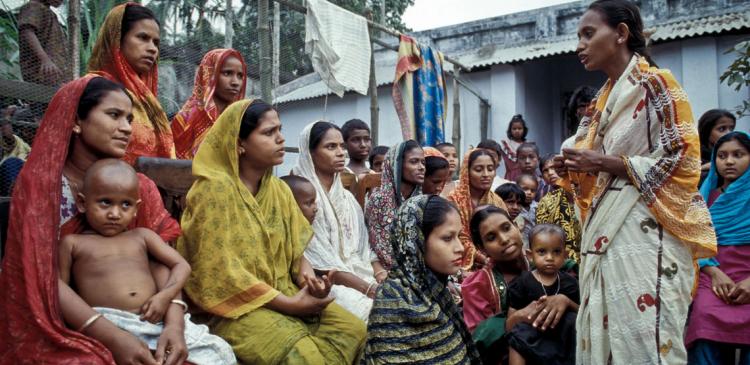Graduation
Despite common stereotypes of paternalistic Arab-Muslim societies, the numbers of Arab women travelling to Western countries to further their education is on the rise. Amani Hamdan from the University of Dammam in Saudi Arabia wanted to know how Arab-Muslim women who studied in Canada perceive gender and what factors influenced their educational achievements.
Hamdan conducted in depth interviews with nine Arab Muslim women to understand the factors that enabled them to achieve academic and career success in Canada. She found that the factor mentioned most often and most emphatically was paternal support. In the interviews, the women said their fathers protected them from cultural norms and traditions that are unsupportive of female education. The women believed their fathers wanted them to have an education to ensure socio-economic circumstances similar to those they grew up in. In several cases there was a longstanding family tradition of promoting female education. Most of the fathers were described as taking an approach to Islam that affirms gender equality, especially when it comes to women receiving a solid education.
“The value of this research project,” writes Hamdan, “is that it disrupts the typical and inaccurate monolithic representation of Muslim women. It challenges Western assumptions about these women as constituting a homogenously oppressed group.”
On the other side of the globe, Faraha Nawaz from Flinders University in Australia was interested in evaluating the role of microfinancing on Bangladeshi women’s political engagement. Most literature on the impacts of microfinancing has focused on women’s socio-economic empowerment. Fawaz conducted in depth and focus group interviews with 40 women who received microfinance assistance from two non-governmental organizations working in the country. She asked the women about their knowledge of the political process and their involvement in it through voting, campaigning, and belonging to political parties. Her research revealed that the women’s involvement in microfinancing schemes played a role in increasing their political awareness and participation in the voting process. Only a small number, however, became active in political parties and in campaigning. Representatives of the NGOs and interactions with other women partaking in the schemes seemed to play an important role in this regard. The women mentioned group meetings as a platform for sharing knowledge, making informed decisions, and providing encouragement.
“NGOs need to consider women’s political empowerment more seriously by offering opportunities for appropriate training and advocacy in this area,” Nawaz concludes.
For more information about the research, contact
Amani Hamdan
University of Dammam, Saudi Arabia
Email: [email protected]
Faraha Nawaz
Flinders University, Australia
[email protected]
About Pertanika Journal of Social Sciences & Humanities (JSSH)
Pertanika Journal of Social Sciences & Humanities (JSSH) is published by Universiti Putra Malaysia in English and is open to authors around the world regardless of nationality. It is published four times a year in March, June, September and December. Other Pertanika series include Pertanika Journal of Tropical Agricultural Science (JTAS), and Pertanika Journal of Science & Technology (JST).
JSSH aims to develop as a pioneer journal for the social sciences with a focus on emerging issues pertaining to the social and behavioural sciences as well as the humanities. Areas relevant to the scope of the journal include Social Sciences—Accounting, anthropology, Archaeology and history, Architecture and habitat, Consumer and family economics, Economics, Education, Finance, Geography, Law, Management studies, Media and communication studies, Political sciences and public policy, Population studies, Psychology, Sociology, Technology management, Tourism; Humanities—Arts and culture, Dance, Historical and civilisation studies, Language and Linguistics, Literature, Music, Philosophy, Religious studies, Sports.
The journal publishes original academic articles dealing with research on issues of worldwide relevance. The journals cater for scientists, professors, researchers, post-docs, scholars and students who wish to promote and communicate advances in the fields of Social Sciences & Humanities research.
Website: http://www.pertanika.upm.edu.my/
For more information about the journal, contact:
The Chief Executive Editor (UPM Journals)
Head, Journal Division, UPM Press
Office of the Deputy Vice Chancellor (R&I)
IDEA Tower 2, UPM-MDTC Technology Centre
Universiti Putra Malaysia
43400 Serdang, Selangor
Malaysia.




